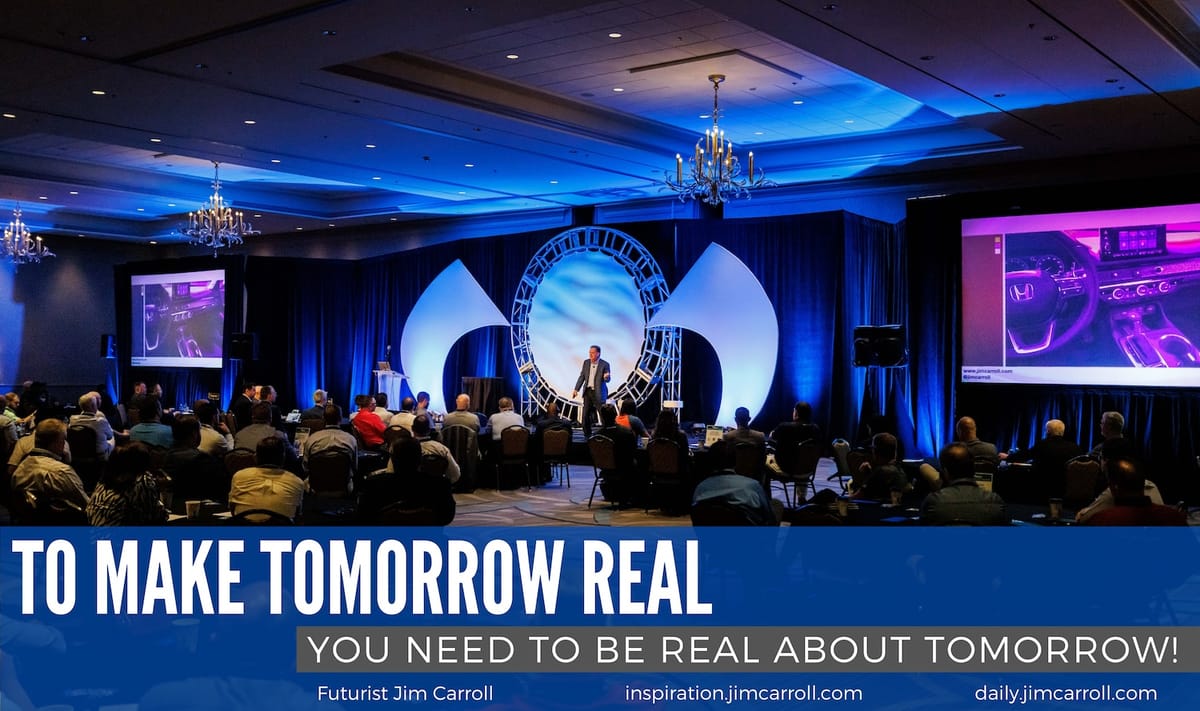"To make tomorrow real, you need to be real about tomorrow!" - Futurist Jim Carroll
Over the last two years, I've done dozens of CEO-level corporate offsites focused on AI.
Here's what I've learned corporate groups are looking for - first and foremost, they know that they need to be realistic about where this might take them tomorrow.
1. They want strategy, not hype.
2. They want to know how AI might help them achieve other strategic goals - they don't view AI as a strategy in and of itself
3. They want to know the mid-and-long term trends, not just what's happening right now
4. They know that AI is bigger than ChatGPT - and want to know what that is all about, and what it means for them.
5. Because of that, they want to understand what's happening with AI robotics, machine vision, machine learning, and other big trends.
5. They aren't buying into the idea that AI will steal all the jobs - they want to know how to empower their workforce with AI-based knowledge and skills
7. They don't want to understand *how* AI works - they want to know its impact and opportunities.
8. They aren't prepared to invest a lot in AI until they have real strategic clarity on all these things.
9. They are looking for detailed insight that is particular to their industry, knowledge base, and skill set
10. They know that this is a long-term voyage, not a short-term hit, and so they want insight on how to approach it.
With that in mind, they are thinking about a wide variety of strategic, leadership-oriented questions:
- how will AI affect my industry?
- what existential, big industry challenges might come my way that I am not aware of?
- what impact will these new AI technologies have on my company or association?
- what new strategic opportunities might exist?
- what complex new challenges might the acceleration of AI present me with?
- what skills issues are emerging that I need to start thinking about now?
- what disruptive transformation might occur?
- what new legal and risk issues must I plan for?
- what is the possibility for the emergence of new competitors that are building on AI-based disruption?
- what barriers do I have in the way that might hold me back from adapting to AI-based change in my industry?
- what experience and skill set should I be building?
In other words – it’s not AI that matters, it’s the strategic thinking around its emergence.
In other words, to realize the opportunity of AI, they need to be real about what it represents - and in that context, know that to make tomorrow real, they need to be real about tomorrow!
Futurist Jim Carroll provides details on many of his leadership-oriented AI keynotes at https://jimcarroll.ai .

